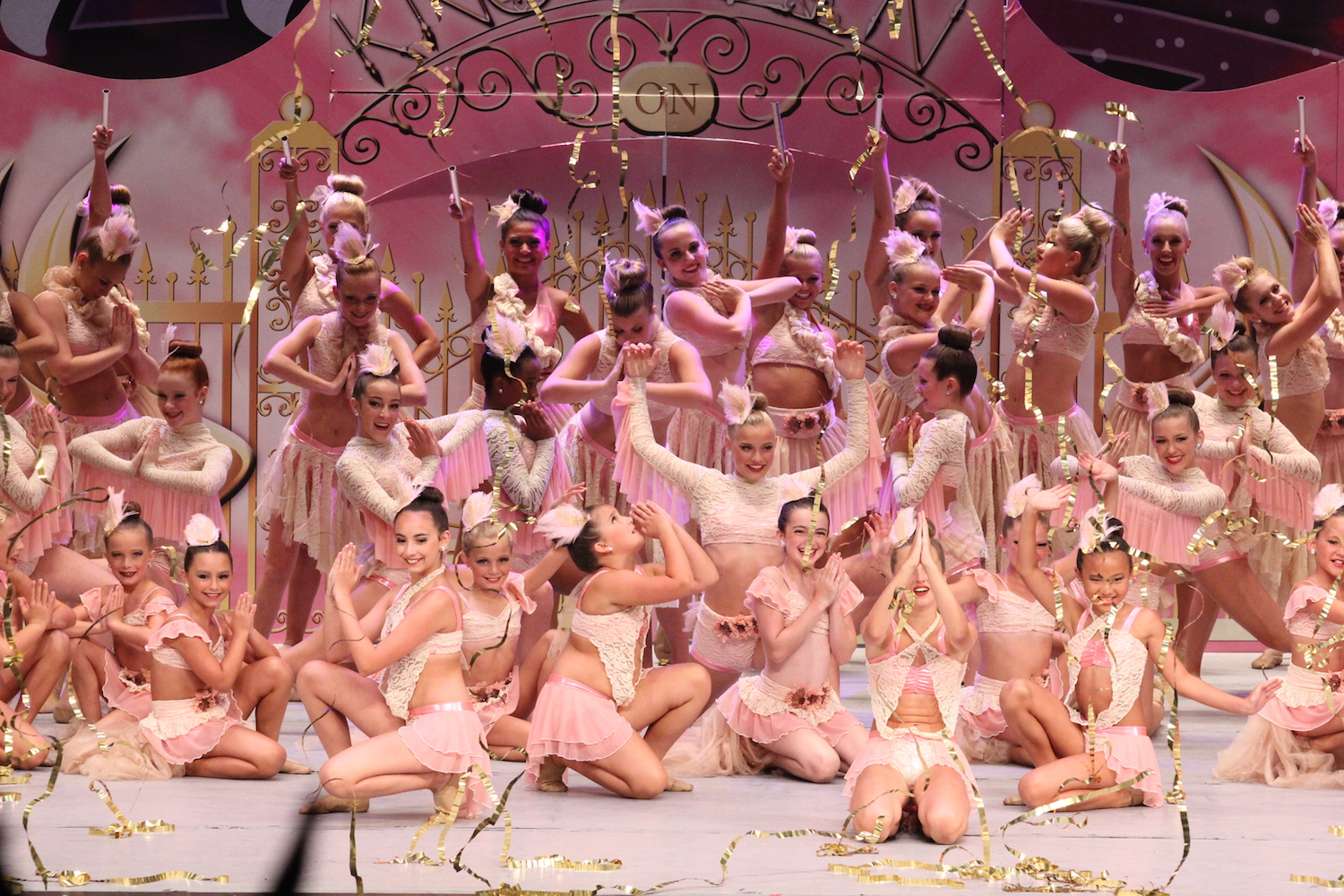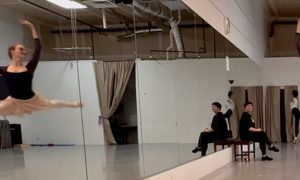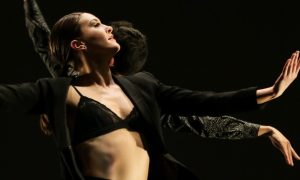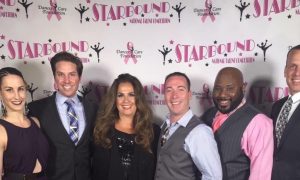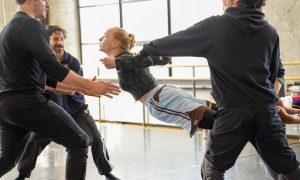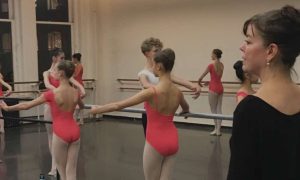Competition season is upon us. Costumes are ordered (and most likely rhinestoned), dances are finished (and hopefully clean), and hotels are booked. To become even more prepared for this year’s competitions, I’ve compiled a list of what dance competition judges want when they are sitting for long hours, which can be a bit exhaustive.
I judge for two competitions, and I have several phrases that I find myself repeating multiple times per dance, all day long. I’ve also asked a few of my adjudicator friends for their input, because judging a dance competition is, after all, subjective. Every judge looks for different nuances and technical elements. Here is a list of the most commonly stated judging phrases and helpful tips.
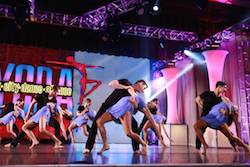
Dancers performing at New York City Dance Alliance. Photo courtesy of NYCDA.
#1. Point your feet.
I know – it’s so obvious, but so many dancers surprisingly don’t fully point! There are many different ways to say the same exact thing. Extend your energy through your feet; make sure you’re pointing your toes, not just your ankles; roll through your feet, and so on. They’re all saying the same basic principal that every dancer needs to master…pointing your feet. Point your feet during jumps by peeling your feet off the floor, point your feet during floor work and transitions, and (my most common correction) point your feet during à la seconde (or second) turns. It really is the most obvious and first way that a competition judge can tell right off the bat if you’re going to get a high or low technique score. I know it seems so basic, but seriously…point your feet!
#2. Dead face equals sleepy/annoyed judge.
There aren’t many things worse in the whole world of the performing arts than “dead face”. If you listen to your critiques from a competition’s judges, and they say things like, “What are you dancing about?”, “What is your story?”, “Smile!”, or “Give me more emotionally!”, then you probably need to watch your face in the mirror next time you run your dance or solo, and make sure you’re giving some kind of face.
Some tips: A hip hop dance can still include facials — a smirk, something. When in doubt, smile; it’s something. We can see you in the back; you still have to emote. And fake facials that are over-the-top and contrived don’t normally score well with me, but it’s better than nothing.
#3. Cleanliness really is next to Godliness.
Teachers! Clean your dances. Clean your dances. And then clean your dances again. Solos, duets, [especially] group dances — clean them all. If you are not the best at cleaning dances, then hire someone to come in and clean your dances. As a judge, you want the dancers on stage to succeed. It is so hard to watch a dancer not perform to the best of their ability because they are insecure with the spacing or choreography. Help them by pushing them to run their dances again and again.
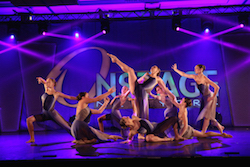
Dancers performing at Onstage New York. Photo courtesy of Onstage.
#4. Choose a different song than the #1 hit.
We know…most of us judges are choreographers ourselves. We want to use the latest Adele song, too. But since we know we’re going to judge about 50 Sam Smith’s per day, we tend to stay away from the popular song of the moment when choreographing on our students. If you do feel compelled to use a particular song, try at least to find an acoustic version, or a covered version of the song. This helps judges with their sanity, and you won’t be penalized immediately when we hear, “Hello…it’s me…”.
#5. Present yourself professionally.
There is absolutely no excuse for untidy hair and ripped tights. Always have a back-up plan. Judges do not penalize for a cast (but put some nude ace bandages around it if it’s hot pink), or for costume malfunctions that are out of the dancer’s control. But “there is no excuse for sloppy presentation,” says competition judge Lesley Anne Mealor. “Make sure you’ve rehearsed in costume before the day of the performance, and make sure nothing is out of place.”
#6. Be gracious, sincere and positive.
One of the most horrific things I’ve ever seen at a competition is when a dancer receives an award (probably not exactly the award they wanted or expected), and he or she is uncouth and ungrateful for the award, or rolls his/her eyes. Or when another studio’s dancers scored higher, and you are unkind and unsupportive toward the other studio. Yes, dance competitions are about awards and placements, but why not be supportive of your peers, when one day, they might be your co-worker or college roommate? The dance world is a small one.
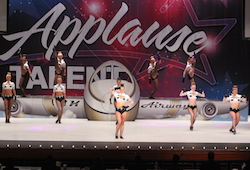
CK DanceWorks dancers in ‘CK Airways’, choreographed by Christina Wiginton and Brian Mason. Photo by Dance Studio Life.
#7. Performance vs. Technique.
The age-old question: which is more important, performance or technique? For a lot of judges, including myself, they really are equal. Dance competition judge Jordan Keyon Smith says, “Remember that showmanship and performance quality are just as important as great technique.” I love a beautifully executed technical dance. But if that dancer’s performance quality does not match his or her technique, I take off points for overall performance.
An example of this I see quite often is in tap soloists. Often, a tap dancer’s feet are insane and would score the highest out of all solos but their performance quality is lacking because they might think, “It’s tap, not lyrical. I don’t have to perform as much.” This is not the case. Watch Michelle Dorrance if you need tap performance inspiration.
#8. Have fun! Seriously.
I know firsthand how crazy competitions can be — the quick changes, the moms, how tired you are, and the pressure of doing well for your teachers, choreographers and the judges. It can all be quite overwhelming. Keyon Smith encourages, “Always have fun! Months of your hard work and dedication culminate in minutes on that stage, so enjoy the moment!”
When you can, take a break, take a moment, and watch other dancers or play a game with your friends backstage. And appreciate that you have the opportunity to dance, which should never be taken for granted. And we, as judges, will always score a dance higher if the dancers on stage have high energy and are having fun! Because that way, while sitting in our isolated chairs, after hours of talking into a microphone, we have a little fun, too.
By Allison Gupton of Dance Informa.
Photo (top): Students from CK DanceWorks at competition. Photo by IT Cinema.


